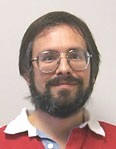|
DR. BROWN’s research interests lie in the general area of control
theory. The main field of expertise is welding control, adaptive
control, periodic disturbance cancellation and intermittent control.
In addition Dr. Brown has interest in bioinformatics and modeling pf
cellular signal transduction.
One major result, of Dr. Brown’s, in welding control is the
realization that force, displacement and possibly cylinder air
pressure during electrode contact provide a reliable way of detecting
machine and part misalignment prior to the weld. It has been shown
that these conditions significantly affect the appropriate choice of
weld schedule. It is also possible that these signals can be used to
dynamically detect weld electrode condition. Dr. Brown’s work in
welding control has led to his serving on the Board of Directors of
IRW, Inc. This was the automobile industry’s research consortium aimed
at improving the state of the art for resistance spot welding. Up to
30% of spot welds made by the automobile industry are in excess of
those required to meet structural integrity. If the industry could
reduce the number of spot welds mad per year by 10%, the cost savings
are estimated to be as high as 100 million dollars per year. The
improved consistency of the welding process that can be delivered by
dynamic detection of electrode and operating condition could make this
a reality.
Intermittent Cancellation control is a control paradigm for canceling
constant offsets and periodic disturbances via an open/closed loop
strategy. This approach, for example, allows the benefits of integral
control to be incorporated in a control strategy with out having to
suffer the costs of the associated phase lag. In addition, Dr. Brown
has shown the states of a simple internal model in IMC control
strategies can be directly mapped to any error in the assumed
frequency of a periodic disturbance. This error can be used to
adaptively update the frequency in an internal model to generate
superior adaptive notch filters and perfect periodic disturbance
cancellation. The periodic control strategies being developed could
find application for vibration cancellation in the semiconductor
industry, for noise cancellation and in servo motor applications. An
especially apt field for these algorithms is also in control
algorithms for allowing read/write heads in disk drives to achieve
greater precision in positioning. This is one of the requirements for
continuing to achieve greater data densities.
The success of the human genome project is a milestone in human
history. However, simply cataloging the human genome does not lead
directly to new understanding. Dr. Brown has been working on methods
and tools for deriving insight for genomic and proteomic data. Dr.
Brown’s main approach involves dynamic models of signal transduction
pathways. The components of these pathways are believed to represent
over half of the human genome, and are vitally involved in critical
issues such as cancer, pain, metabolism, etc. In addition Dr. Brown is
developing visualization and analysis tools for developing insight of
the high throughput data now becoming available to biologists.
KEYWORDS: Welding control, adaptive control, periodic disturbance
cancellation, bioinformatics, signal transduction
|


